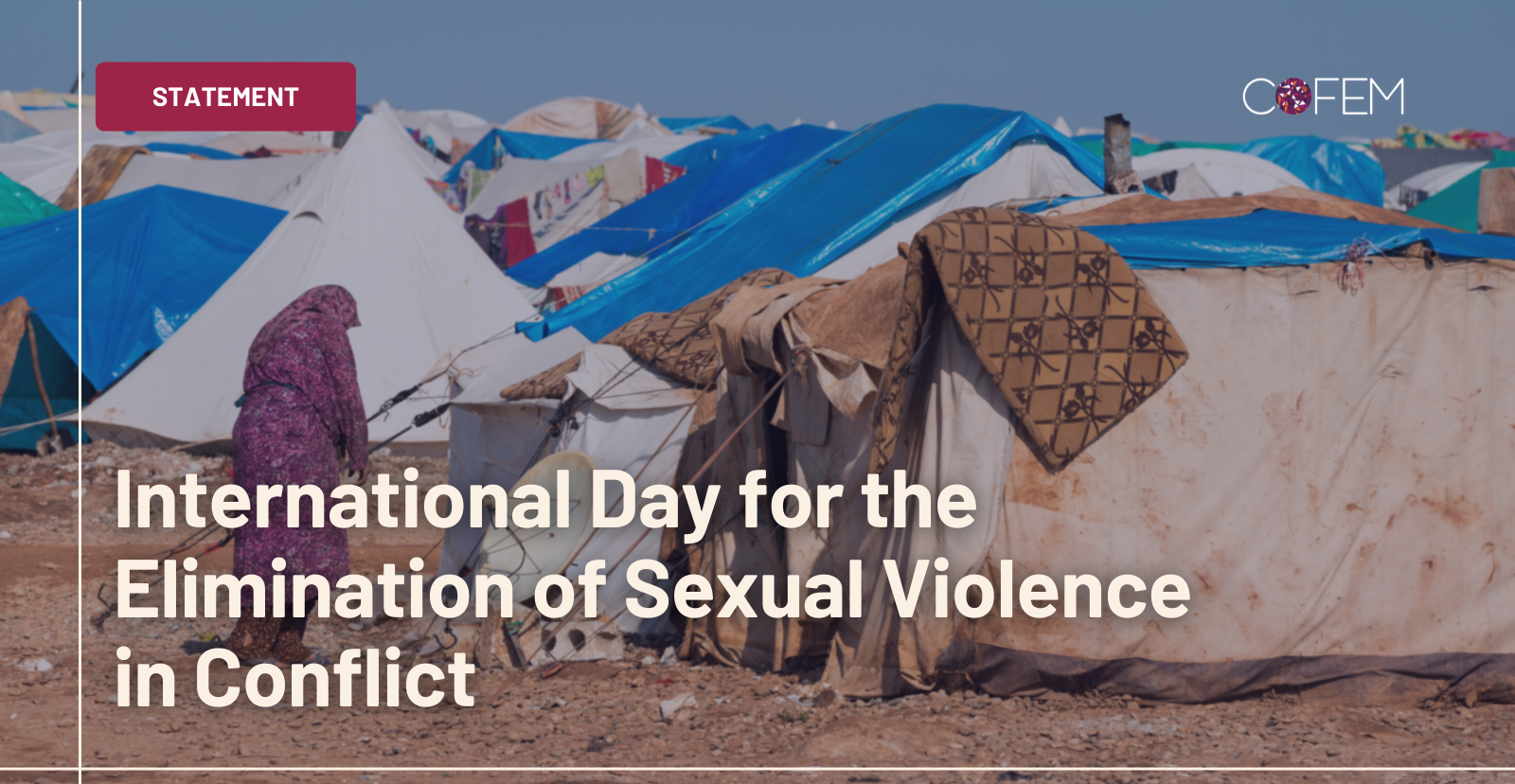This year, on the occasion of the seventh International Day for the Elimination of Sexual Violence in Conflict, COFEM reflects on the past year as we continue to grapple with the COVID-19 pandemic. The spotlight continues to be on the impact of COVID-19 on survivors of conflict-related sexual violence, and we honor the strength and remarkable resilience of women and girls whose lives have been further upended by COVID-19.
With COVID-19 exacerbating various forms of violence against women and girls (VAWG) and sexual violence being a well-known side effect of emergencies, conflict-related sexual violence has been no exception during this pandemic. A report on conflict-related sexual violence from January to December 2020 from the UN Secretary-General found that “Lockdowns, curfews, quarantines, the fear of contracting or transmitting the virus and limited access to first responders compounded the existing structural, institutional and socio-cultural barriers to the reporting of sexual violence, which is already a chronically underreported crime. The contraction of routine health services and the imposition of transportation restrictions also created barriers to the provision of services, including access to emergency post-rape care and sexual and reproductive health care, for victims of sexual violence. The pandemic further complicated the pursuit of justice and redress, as lockdowns affected reporting mechanisms, the work of investigators, judges, prosecutors and lawyers and the overall effective functioning of justice and accountability systems.”
COFEM would like to take this opportunity to highlight the long-term effects of the COVID-19 pandemic and its specific impact on women and girls who have experienced conflict-related sexual violence. The above issues of isolation, lack of access to families and support networks, the delayed process of justice, being ‘locked down’ in the same vicinity as perpetrators, lack of or delay in VAWG response as essential services, and more have further aggravated the ‘shadow pandemic’ of VAWG. These factors have an acute impact on women and girl survivors of conflict-related sexual violence as they cope with their trauma and healing in this fraught and complex context. The militarization employed in many conflict situations, impacting women’s organizations to respond and continue their delivery of services, has further compounded the problem.
Sexual violence in conflict situations is exacerbated by the difficulty in accessing health services in the context of the pandemic. Women survivors of sexual violence have to grapple with access to health care and the prolonged effects of living in a pandemic where there is gross inequity in access to preventative COVID-19 vaccines and physical and mental healthcare. We recognize that women and girls living in conflict-affected communities (including those in refugee and detention centers) are among the most marginalized in gaining access to information and the vaccine itself. We also want to draw attention to possible high levels of corruption resulting in sexual demands for access to the vaccine, as has happened in the past, which is also a form of sexual violence against women and girls in conflict.
COFEM reaffirms its 2020 call for governments and the larger humanitarian community to ensure that VAWG prevention and mitigation measures are explicitly integrated into COVID-19 policies and guidelines and that financial support is provided to women at the frontlines. The participation, safety, and leadership of women and girls is the only sustainable way to recover COVID-19 and end sexual violence in conflict.
